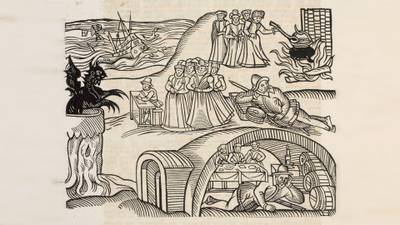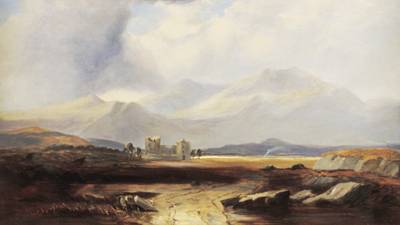Develop your understanding of transnational visual media.
Join us online to study transnational cinema and comics with experts from across disciplines.
In this postgraduate-level online short course, you’ll explore a diverse range of fascinating cinema and comics from around the world.
You’ll examine how these visual media cross borders, how they reshape media histories and challenge dominant global narratives.
With expert guidance, you’ll build your skills in cultural analysis, learning to use new tools and methodologies to analyse transnational media.
Who can join this transnational media course?
If you’re interested in exploring diverse popular cultures, subcultures, visual media, and cultural analysis, this course is designed for you.
The knowledge and skills you’ll gain are particularly valuable for career progression within education, broadcasting, journalism and the media, as well as preparing you for further postgraduate study.

Build credits towards a postgraduate qualification
This short course is part of:
You can use the credits you earn on this course towards either of these postgraduate qualifications.
What you’ll study
In this course, you’ll explore how comics and cinema from diverse cultural contexts represent stories of migration, identity, activism, and global crisis.
You’ll develop skills in analysing comics and cinema and apply these to a range of diverse case studies, taking a transnational and interdisciplinary approach.
You’ll examine how these media cross borders – culturally, linguistically, and formally – through different genres, from personal memoirs and documentary comics to political animation and genre cinema.
Topics you’ll cover
You’ll focus on key works and topics that illuminate the relationship between media, mobility, and cultural identity, including:
- visual storytelling and displacement in autobiographical comics
- journalism, conflict, and testimony in the Middle East
- comics and cinema responding to global crises, from pandemics to climate change
- transnational genre films and stories of exile and migration.
Engaging with both theoretical texts and cultural representations, you’ll develop critical tools to analyse comics and cinema beyond national frameworks, with attention to how they reshape media histories and challenge dominant global narratives.
Content advice
The content and discussion in this course may cover themes that some students may find upsetting, including: sexual violence, physical or mental abuse, racism and racial slurs, homophobia, transphobia, sexism, mental health issues, physical disease/pandemic, animal experimentation/cruelty/death, hateful language, war/apartheid/mass slaughter/genocide.
This content advice is here to prepare you for the discussion of these topics. The classroom will be made a space to engage sensitively and empathetically with this content. Confidential and impartial support is also available from the Student Advice and Support Office.
By the end of this course, you’ll be able to...
-
Demonstrate an advanced understanding of comics and cinema as transnational media forms.
-
Analyse visual narratives using appropriate theoretical frameworks and methodologies.
-
Synthesise diverse sources and situate cultural texts in their broader political and historical contexts.
-
Communicate ideas clearly and persuasively in both speech and writing, using relevant critical vocabulary.
Choose the University of Aberdeen for online courses in transnational media

Fits around full-time work
This online course fits around work, with flexible hours and 24/7 study access.

Over 525 years of excellence
Study with the fifth-oldest university in the English-speaking world, founded in 1495.

20% alumni discount
University of Aberdeen alumni get 20% off fees for this online course.
How you’ll study
Online learning
This distance-learning transnational cinema and comics course is delivered flexibly, 100% online.
You can learn with us anywhere in the world, no student visa required, and manage your study hours to suit you.
Your teaching
This course is taught at postgraduate level.
Teaching is delivered through MyAberdeen, our online Virtual Learning Environment (VLE). It holds all the materials, tools and support you’ll need in your studies. Take a look around MyAberdeen.
You can access your learning materials on computer, smartphone and laptop, 24 hours a day. You’ll find a range of online resources available, including:
- videos
- video lectures
- slide shows
- reading materials
- discussion boards with your tutors and peers
- the online resources of our award-winning Sir Duncan Rice Library.
Discussion boards
Each topic in this course features a discussion board where you’ll respond to the assigned material. At the end of each week, tutors will provide written or recorded feedback on the discussion.
Your tutors
This online short course is delivered by our School of Language, Literature, Music and Visual Culture.
You’ll learn from an interdisciplinary team of accomplished academic researchers in the fields of literature, visual culture, French language and cultural studies, German language and cultural studies, and environmental humanities, including:
- Professor Nadia Kiwan, Personal Chair in Francophone Studies
- Professor Shane Alcobia Murphy, Personal Chair in English Language, Literature, Music and Visual Culture
- Dr Katya Krylova, Senior Lecturer in German, Film and Visual Culture
- Dr Clemence O’Connor, Lecturer in French Language, Literature, Cinema and History
- Dr Alejandra Rodriguez-Remedi, Lecturer in Film
- Dr Calum Waddell, Lecturer in Film
This course is assessed online.
You’ll be assessed throughout your studies via:
- an essay (worth 55% of your final course grade)
- your entries on discussion boards (10%), and
- a review essay (35%).
Recorded videos
This course features ten online videos with accompanying material for each topic covered, as well as two optional orientative videos on film and comic analysis. Each video lasts around one hour.
Study hours across the course
This course totals approximately 300 hours of study and assessment time. That’s around 15 – 20 hours per week.
This is an indicative guide to the time required for a typical student at this level to achieve the learning outcomes. This includes time for independent study, as well as teaching and assessments.
You can largely set your own study hours each week to cover the materials. MyAberdeen is available 24/7, so you can log in and study when it suits you.
Our first-class support structure will ensure that you aren’t alone in your studies. You’ll have contact with your coordinator via email, MyAberdeen and Microsoft Teams. You can use social media and discussion boards to chat with your fellow students too.
We provide a wide range of services to support you in your studies and beyond:
- Careers and Employability Service
- Disability support
- IT support
- Library support
- Student Support Service – help with finances, wellbeing, and non-academic issues
- Student Learning Service – study skills support and advice
- Aberdeen University Students’ Association (AUSA) – run by students for students
- Toolkit – clever apps and free training that can make your study life easier
Wherever you are in the world, you’ll feel part of our very special Aberdeen learning community.
Your course coordinators

Dr Fransiska Louwagie
Fransiska is a Senior Lecturer in French and Francophone Studies. She holds a PhD in French (post-) Holocaust literature.
Fransiska’s research combines literary studies with a range of interdisciplinary perspectives. In particular, she has worked on survivor narratives and the representation of the Holocaust in contemporary Francophone fiction and comics. She also works on other contexts, such as Rwanda and South Africa.
She has undertaken various research collaborations in the field of drama and the visual arts, particularly graphic novels, post-Holocaust art and political cartooning.
View Fransiska’s profile
Dr Jesse Barker
Jesse is a Senior Lecturer in Spanish and Latin American Studies at the University of Aberdeen.
His research interests include 20th - 21st century Spanish literature, film and culture, environmental humanities, and ecomedia.
Jesse’s current monograph project explores how historical and contemporary Spanish audiovisual media engage with ecological themes.
View Jesse’s profileWhere this will take you
Towards a postgraduate qualification
You’ll earn 30 credits at Masters level (SCQF Level 11) with this course. You can use these credits towards our online:

MSc Cultural Memory, Heritage and Society
Build your academic skills in memory, heritage and social studies. Tailor your degree programme to your own interests.
View MSc Cultural Memory, Heritage and Society
PgCert Visual and Popular Cultures
Join us online to investigate how comics, cinema, music, popular culture, and subcultures shape societies, express identities, and respond to global crises.
View PgCert Visual and Popular CulturesCareers
In this course, you’ll develop your skills in cultural analysis, with a particular focus on transnational visual media.
The knowledge and skills you’ll gain can help you progress in or towards careers within:
- education
- broadcasting
- journalism and the media.
Further study
This course is also great preparation for further postgraduate study, particularly in comparative literature or visual culture.
Continuing Professional Development (CPD)
Your employer or professional institute may recognise this course for CPD hours. Talk to your employer or institute to find out more.

Free career support
Access our free careers service while you study.
- 1:1 appointments
- CV checks
- Interview prep
- Job opportunities
Entry requirements
Entry requirements
We welcome students from all over the world.
This course has no formal entry requirements. You do not need to provide proof of your qualifications.
But you do need to check the entry guidance above to understand the level of teaching delivered, to decide if this course is right for you.
If you do not have qualifications from the UK, check the equivalent teaching level for your country.
Visa requirements
You do not need a student visa to study online with us.
English language requirements
Teaching is delivered in English.
You do not have to provide proof of your English language skills to join this course. But we want to make sure that you can use English well enough to study successfully.
Recommended level of English
This course uses our Postgraduate Higher level of English language proficiency.
These are our Postgraduate Higher requirements, and these are minimum scores.
IELTS Academic, IELTS UKVI Academic, or IELTS Online (not IELTS Indicator or IELTS General Training)
- 6.5 overall
- 5.5 for listening and speaking
- 6.0 for reading and writing
TOEFL iBT or TOEFL iBT Home Edition
- 90 overall
- 17 for listening
- 21 for reading
- 20 for speaking
- 21 for writing
- TOEFL DI code is 0818
Cambridge English: B2 First, C1 Advanced, or C2 Proficiency
- 176 overall
- 162 for listening and speaking
- 169 for reading and writing
LanguageCert Academic / LanguageCert Academic SELT
- 70 overall
- 60 for listening and speaking
- 65 for reading and writing
Oxford ELLT Digital – English Language Level Test Online
- 7.0 overall
- 5.0 for listening and speaking
- 6.0 for reading and writing
PTE Academic (online test not accepted)
- 62 overall
- 59 for listening, reading, speaking and writing
Skills for English: SELT
- B2 pass with merit
Duolingo – tests taken from 1 July 2024 onward
- 120 overall
- 95 for listening and speaking
- 105 for reading and writing
University of Aberdeen English Pre-sessional Programme (PSE)
- Pass
- Valid for one year. Refresher can be offered if out of date
Pre-sessional academic English preparation programmes undertaken at other UK universities
- Pass at an equivalent of 6.5 (C1)
- B2 in all four skills
- Certification must be within one year prior to the start of your course
For more information about language qualifications see our English Language Requirements page.
You will need access to:
A computer (PC, laptop or Mac) with an up-to-date operating system
Most teaching materials are smartphone- and tablet-friendly. But we recommend a proper laptop or desktop for completing assignments comfortably.
Reliable internet access
We recommend:
- a wired connection
- a minimum download speed of 2 Mbps so you can take part fully in live sessions.
Speakers or headphones
- We recommend a headset with built-in microphone and earphones if you’re likely to study in an environment with background noise.
- A webcam is optional, but you may like to use one for some interactive sessions.
Software
We’ll give you access to Office365 applications. This means you can use online versions of Microsoft Word, Excel, PowerPoint and OneDrive and install these programs on up to five personal devices.
If your course requires specialist software, we’ll provide you with access to this and a licence that lasts throughout your studies.
See our detailed IT requirements for more information.
When you study with us, you can expect a first-class support structure so that you’re never alone in your studies.
But learning online does mean you have to motivate yourself and manage your own time.
Your most important commitment will be time – the time to work through, reflect on and understand your teaching materials.
Before you start a course that involves a high degree of independent study, we recommend looking at the time you will be able to devote to your studies each week:
- Be realistic
- Create a weekly schedule as a guide
If you have any questions about studying online, get in touch with our friendly team. We’re here to help.
Fee payment
Your course fee needs to be paid in full before you start your course.
We accept payment via Visa Debit, Visa Credit and Mastercard.
Ways to save
You may be able to get help funding this course via:
- discounts – if any discounts are available for this course, they’ll appear in the section below
- employer sponsorship – we accept full and partial fee payments from sponsors.
Find out more about funding options.
Student card
All our students are entitled to a University of Aberdeen student card. This gives you access to a range of student discounts around the city and online.
Learning resources
Access to all the essential books and resources you need are included in your tuition fee. They’ll be made available to you online and you do not have to buy your own copies.
We also provide optional recommended reading lists. Many of these resources are available electronically through our library, although purchases may be required if you wish to read the full list.
Printing
You may want to set aside a small budget for printing, depending on how you like to work.
This course has no formal entry requirements. You decide if it’s suitable for you.
The course is delivered at Masters level. At this level, you’d usually have at least:
- a 2:2 UK honours degree (or equivalent) in a relevant subject, or
- relevant professional experience that supports this level of learning.































